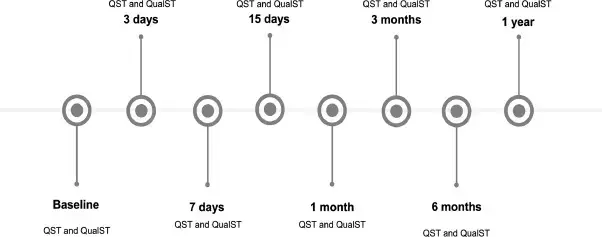- Home
- Medical news & Guidelines
- Anesthesiology
- Cardiology and CTVS
- Critical Care
- Dentistry
- Dermatology
- Diabetes and Endocrinology
- ENT
- Gastroenterology
- Medicine
- Nephrology
- Neurology
- Obstretics-Gynaecology
- Oncology
- Ophthalmology
- Orthopaedics
- Pediatrics-Neonatology
- Psychiatry
- Pulmonology
- Radiology
- Surgery
- Urology
- Laboratory Medicine
- Diet
- Nursing
- Paramedical
- Physiotherapy
- Health news
- Fact Check
- Bone Health Fact Check
- Brain Health Fact Check
- Cancer Related Fact Check
- Child Care Fact Check
- Dental and oral health fact check
- Diabetes and metabolic health fact check
- Diet and Nutrition Fact Check
- Eye and ENT Care Fact Check
- Fitness fact check
- Gut health fact check
- Heart health fact check
- Kidney health fact check
- Medical education fact check
- Men's health fact check
- Respiratory fact check
- Skin and hair care fact check
- Vaccine and Immunization fact check
- Women's health fact check
- AYUSH
- State News
- Andaman and Nicobar Islands
- Andhra Pradesh
- Arunachal Pradesh
- Assam
- Bihar
- Chandigarh
- Chattisgarh
- Dadra and Nagar Haveli
- Daman and Diu
- Delhi
- Goa
- Gujarat
- Haryana
- Himachal Pradesh
- Jammu & Kashmir
- Jharkhand
- Karnataka
- Kerala
- Ladakh
- Lakshadweep
- Madhya Pradesh
- Maharashtra
- Manipur
- Meghalaya
- Mizoram
- Nagaland
- Odisha
- Puducherry
- Punjab
- Rajasthan
- Sikkim
- Tamil Nadu
- Telangana
- Tripura
- Uttar Pradesh
- Uttrakhand
- West Bengal
- Medical Education
- Industry
Somatosensory alterations detected after implant surgery may rapidly decrease after one year: Study

Somatosensory alterations detected after implant surgery may rapidly decrease after one year suggests a study published in the Journal of Dentistry.
This cohort study aimed to assess the incidence of somatosensory alterations after implant surgery using standardized quantitative and qualitative sensory testing. 33 participants with single-tooth loss, undergoing immediate implant loading were included. Quantitative Sensory Testing (QST) and Qualitative Sensory Testing (QualST) were conducted at eight time points over a year (baseline to 1 year). Two-Way Repeated Measures ANOVA and post hoc Tukey test were used on QST values and Cochran Q test on QualST. Results: The study revealed significant increase in thermal thresholds overtime. At the operated side, overall Cold Pain Threshold (extraoral: p = 0.030; intraoral: p < 0.001), and Cold Detection Threshold (intraoral: p < 0.001) increased overtime. In contralateral region, maxilla Cold Detection Threshold (extraoral: p = 0.024; intraoral: p = 0.031), Warm Detection Threshold (extraoral: p = 0.026; intraoral: p = 0.047) and overall Cold Pain Threshold (extraoral and intraoral: p < 0.001) also increased. QualST showed extraoral pinprick (p = 0.032) and intraoral pinprick (p = 0.000), cold (p = 0.000) and touch (p = 0.002) stimuli abnormalities overtime. Somatosensory alterations after implant surgery were detected in both quantitative and qualitative sensory assessments, but rapidly decreased during the first follow-ups, and then continuously until 1-year. This study provides clinical and controlled evidence on the real effect of the somatosensory alterations overtime, leading to a better understanding of neurosensory behaviour after single-tooth dental implant rehabilitation.
Reference:
Matheus Herreira-Ferreira, Estevam Augusto Bonfante, Paulo César Rodrigues Conti, Everardo Napoleão Santana de Araújo-Júnior, Camila Moreira Machado, Patrick Henry Machado Alves, Yuri Martins Costa, Leonardo Rigoldi Bonjardim, Somatosensory alterations after single-unit dental implant immediate loading: A 1-year follow-up study. Journal of Dentistry, Volume 147, 2024, 105148, ISSN 0300-5712, https://doi.org/10.1016/j.jdent.2024.105148. (https://www.sciencedirect.com/science/article/pii/S0300571224003178)
Dr. Shravani Dali has completed her BDS from Pravara institute of medical sciences, loni. Following which she extensively worked in the healthcare sector for 2+ years. She has been actively involved in writing blogs in field of health and wellness. Currently she is pursuing her Masters of public health-health administration from Tata institute of social sciences. She can be contacted at editorial@medicaldialogues.in.
Dr Kamal Kant Kohli-MBBS, DTCD- a chest specialist with more than 30 years of practice and a flair for writing clinical articles, Dr Kamal Kant Kohli joined Medical Dialogues as a Chief Editor of Medical News. Besides writing articles, as an editor, he proofreads and verifies all the medical content published on Medical Dialogues including those coming from journals, studies,medical conferences,guidelines etc. Email: drkohli@medicaldialogues.in. Contact no. 011-43720751


